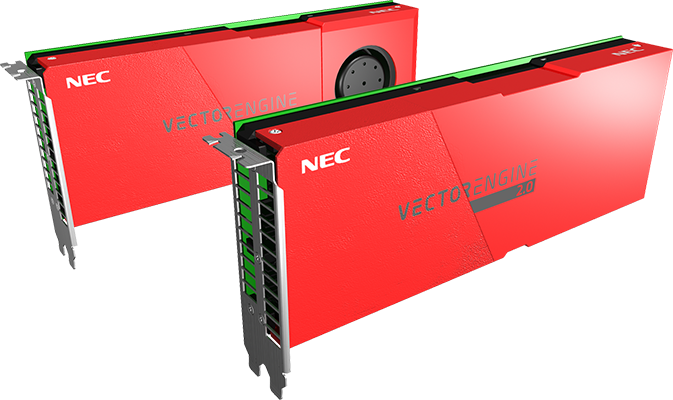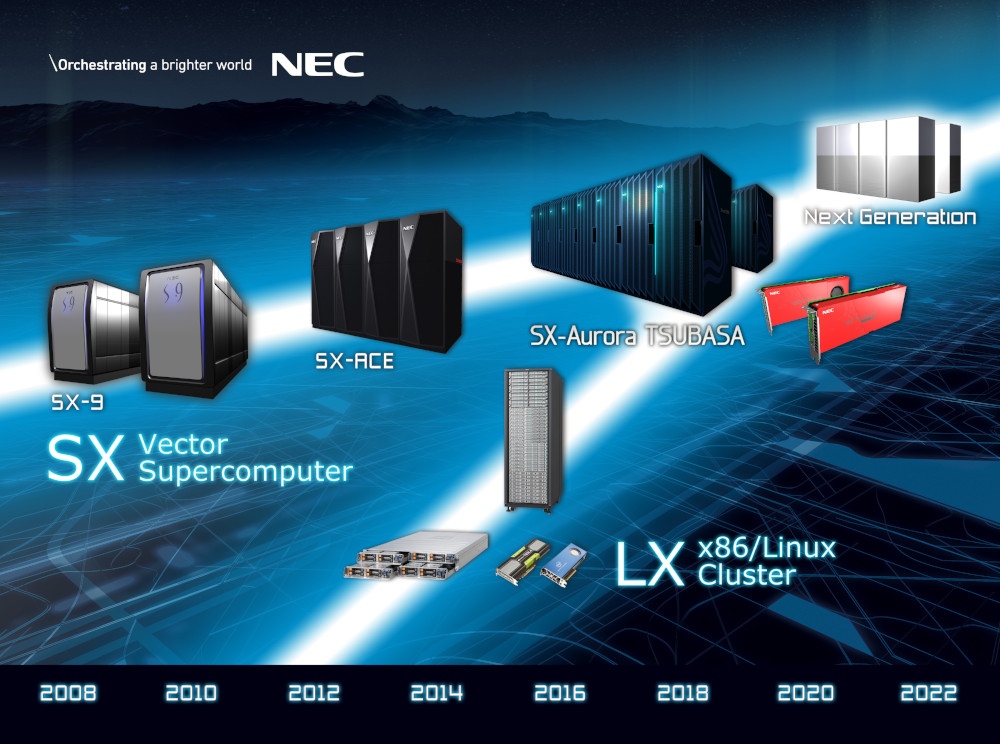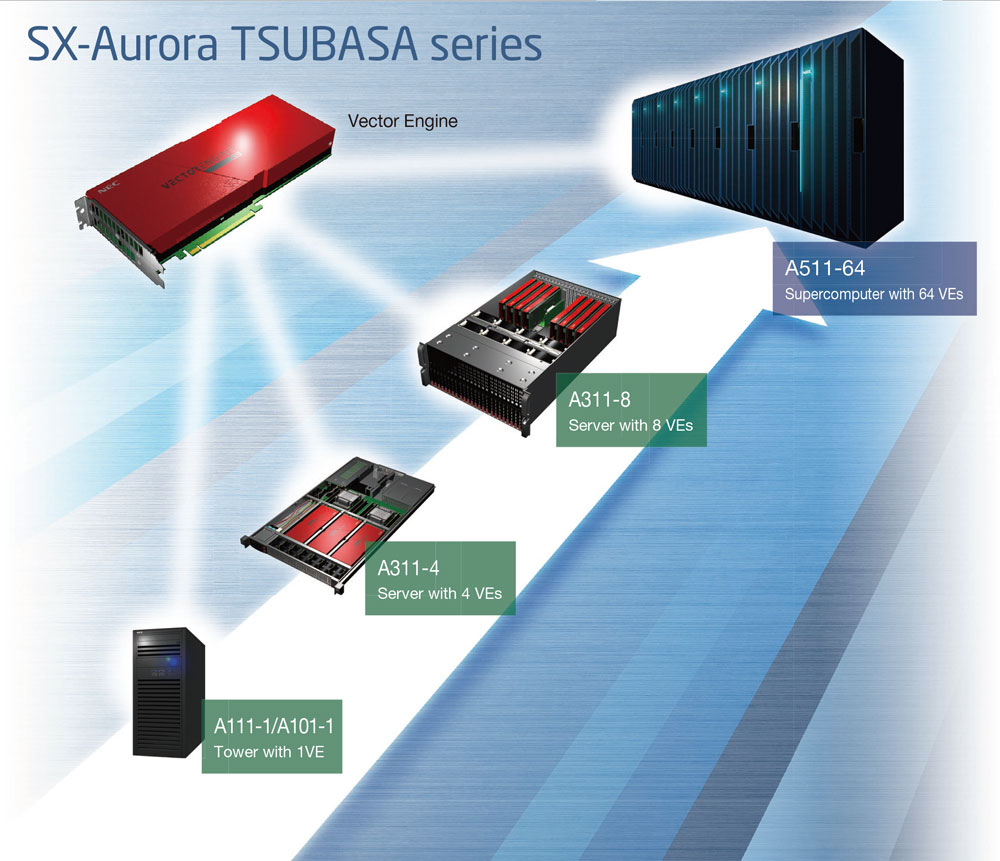United Kingdom
Breadcrumb navigation
NEC SX Vector Supercomputer
NEC SX-Aurora TSUBASA

NEC have developed a Vector Engine (VE) for accelerated computing using vectorization, with the concept that the full application runs on the high performance Vector Engine and the operating system tasks are taken care of by the Vector Host (VH), which is a standard x86 server. This is the first time that the NEC SX series vector processor is integrated transparently into the Linux software environment. This allows the Vector Engine to concentrate on providing the best application performance.
Building on the successful evolution of the SX-series of vector-supercomputers the next generation of this product line clearly focusses on all aspects of efficiency, NEC have combined the flexibility of a cluster with the raw power of the NEC Vector Engine Processor. Whereas the SX-series has previously been only available to large corporations or compute centers, the Vector Engine is now also available to engineers and HPC enthusiasts all over the world.
With the three design concepts vectorization, maximum memory bandwidth and few but strong cores, the new NEC vector architecture gives a strong foundation for high sustained performance.
The Vector Engine Processor integrates eight vector-cores and 48 GB of high bandwidth memory (HBM2) providing a peak performance of up to 3.07 TeraFLOPS. The computational efficiency is achieved by the outstanding memory bandwidth of up to 1.53 TB/s per CPU and by the latency-hiding effect of the vector architecture.
The single Vector Engine Processor core arithmetic unit can execute 32 double precision floating point operations per cycle with its vector registers holding 256 floating point values. With 3 fused-multiply-add units (FMA) each core has a peak performance of 192 FLOP per cycle or up to 307 GigaFLOPS (double precision). The Vector Engine has a peak performance of up to 3.07 TeraFLOPS.

The new NEC SX-Aurora TSUBASA platform provides the full spectrum of hardware from a workstation for the engineering office up to state-of-the-art computer platform for renowned research institutes. This gives software developers a strong platform that scales up to large systems, and also enables research institutes to provide smaller hardware installations where research groups can test and evaluate their own code without having to use time on a large production installation.
NEC provides seven different hardware platforms of varying performance, enabling the customers to select a solution that best meets their requirements.

The continuation of the NEC SX Vector Architecture
The SX-Aurora TSUBASA provides outstanding computational efficiency and consequently high sustained performance.
NEC has combined the versatility of the normal x86 CPU and the performance of a Vector Engine Processor, in that the application runs on the Vector Engine while tasks like I/O and similar operating system functions get performed by the x86 CPU, taking advantage of the integration the Linux kernel has with a wide variety of hardware and software systems. The application developer can concentrate on getting the most out of the Vector Engine and its large high speed memory. There is no need to accelerate parts of the application on the card but the full application runs on the Vector Engine, and additionally a single core is so powerful that also weak scaling applications that profit from vectorization show a better performance on the NEC SX-Aurora TSUBASA platform than on other platforms.
Combining performance with excellent usability, SX-Aurora TSUBASA provides real value to the scientists and engineers. The design provides very low power consumption and dramatically reduced floor-space requirements.